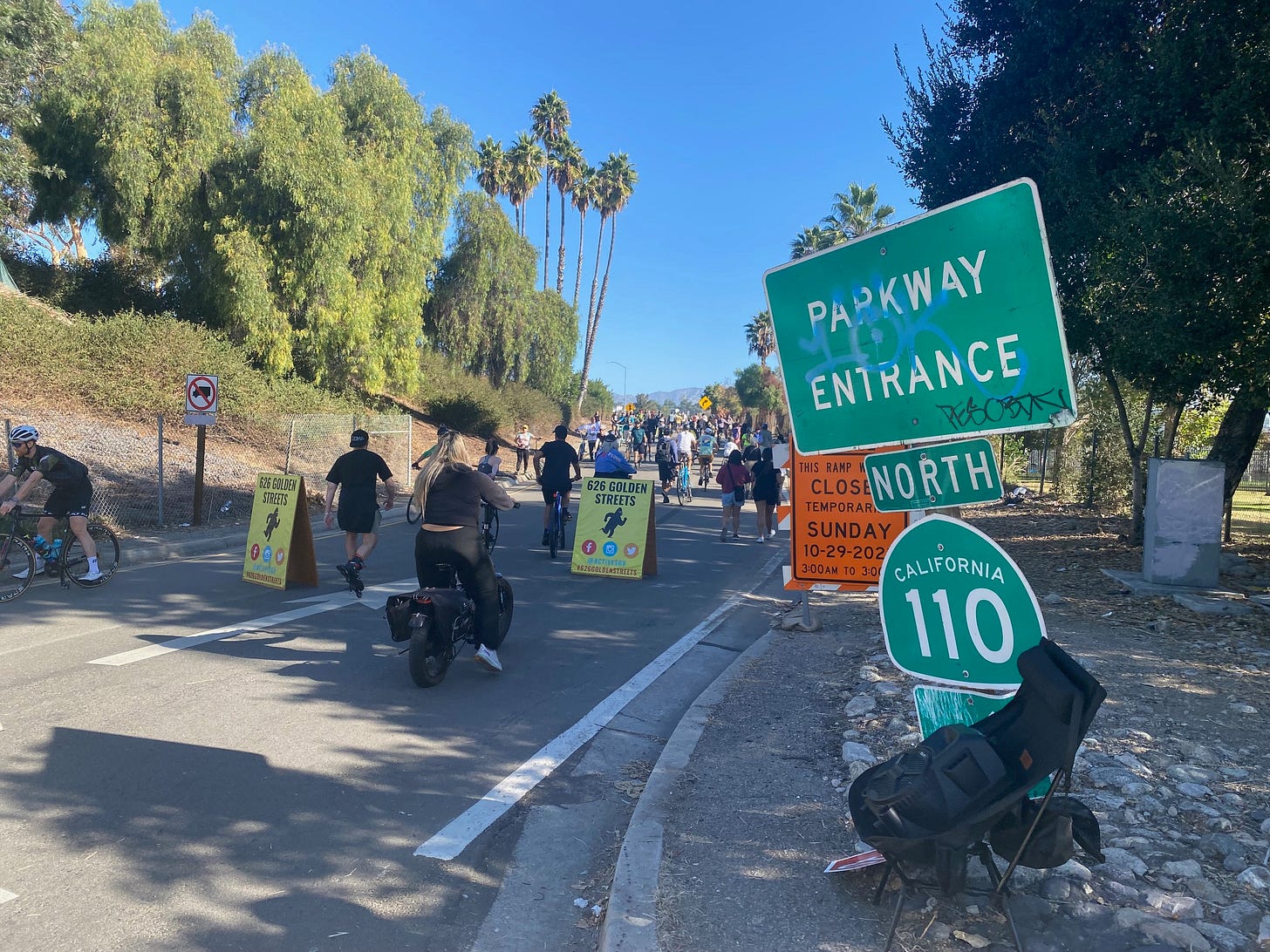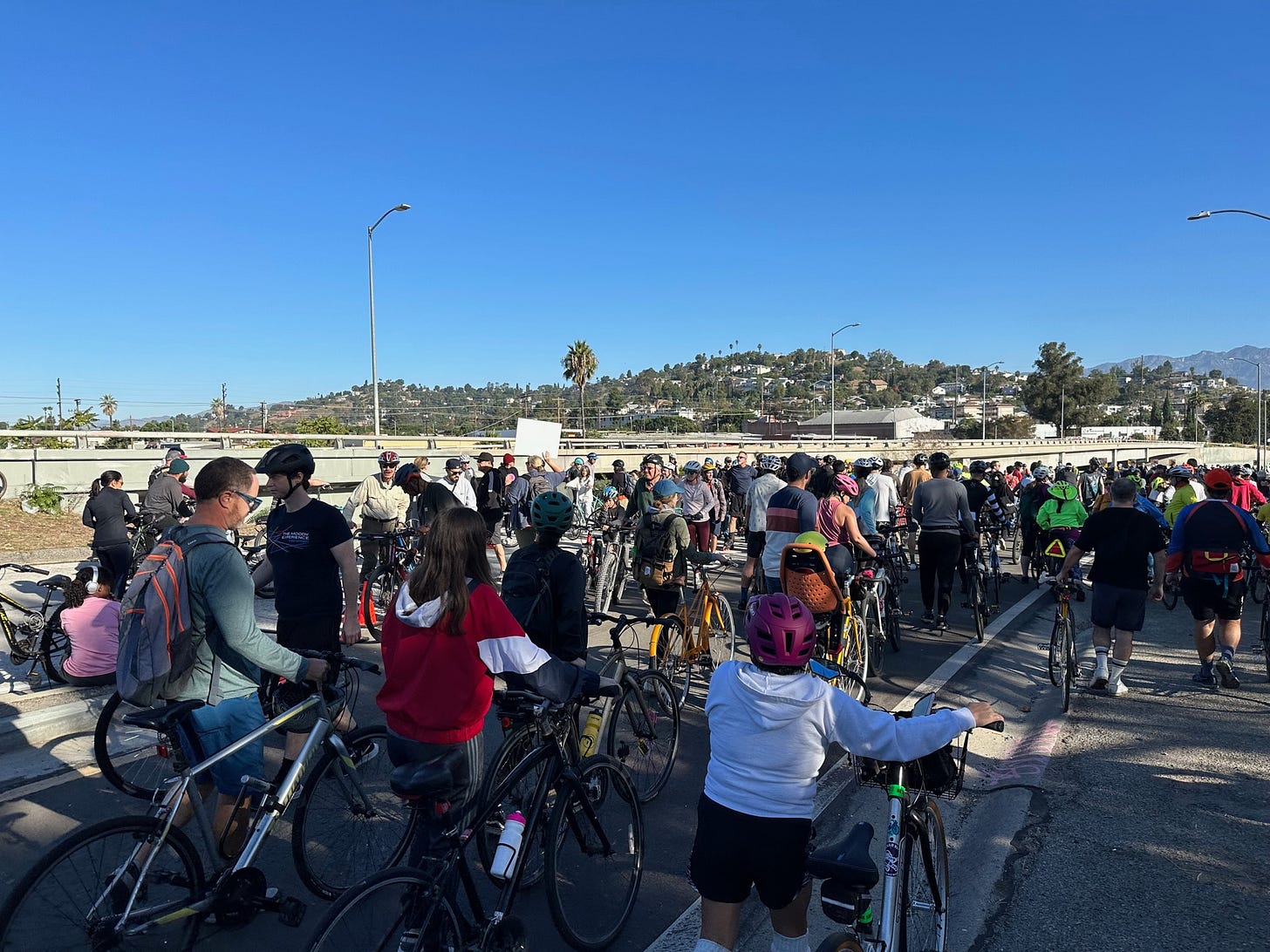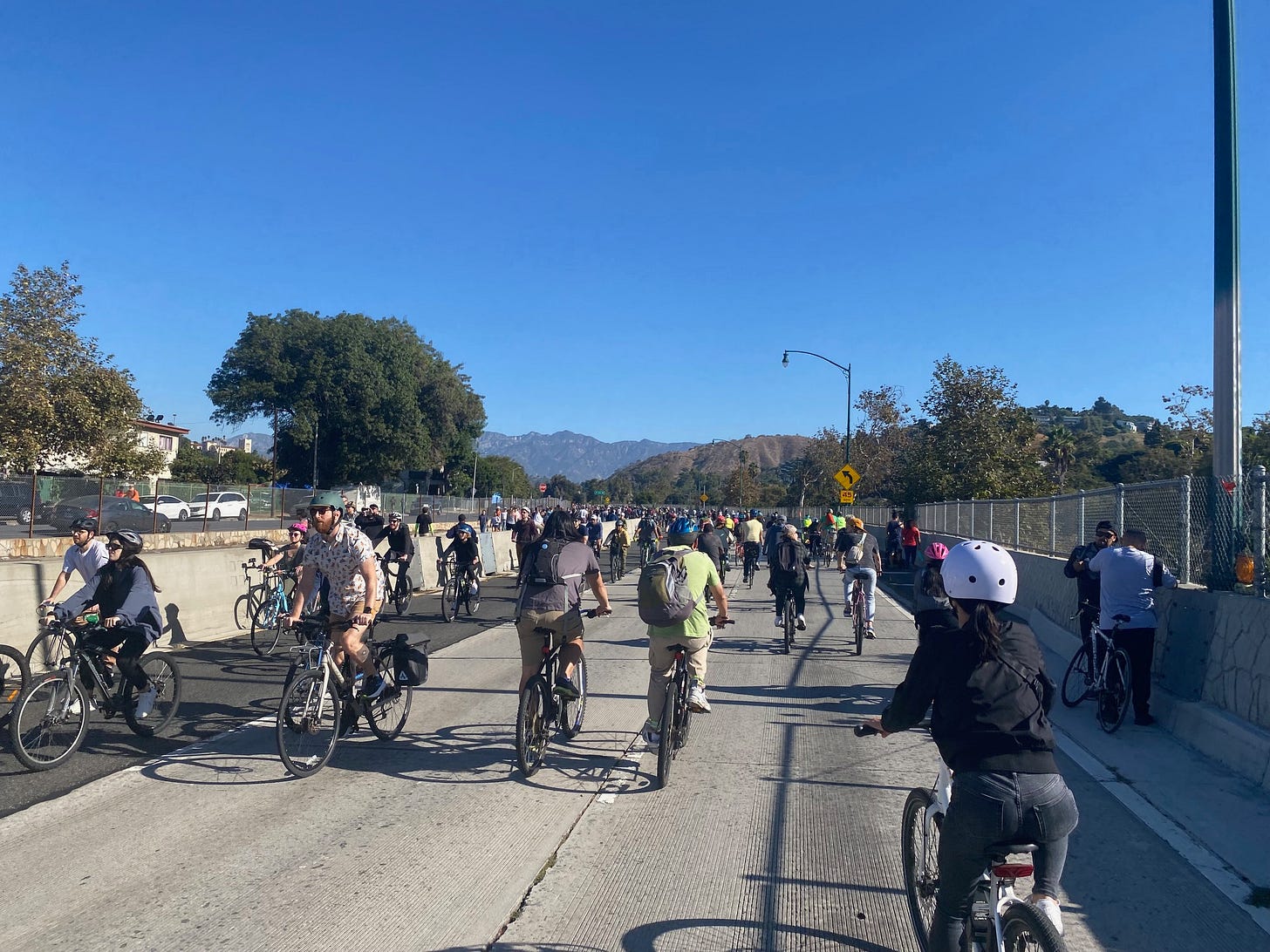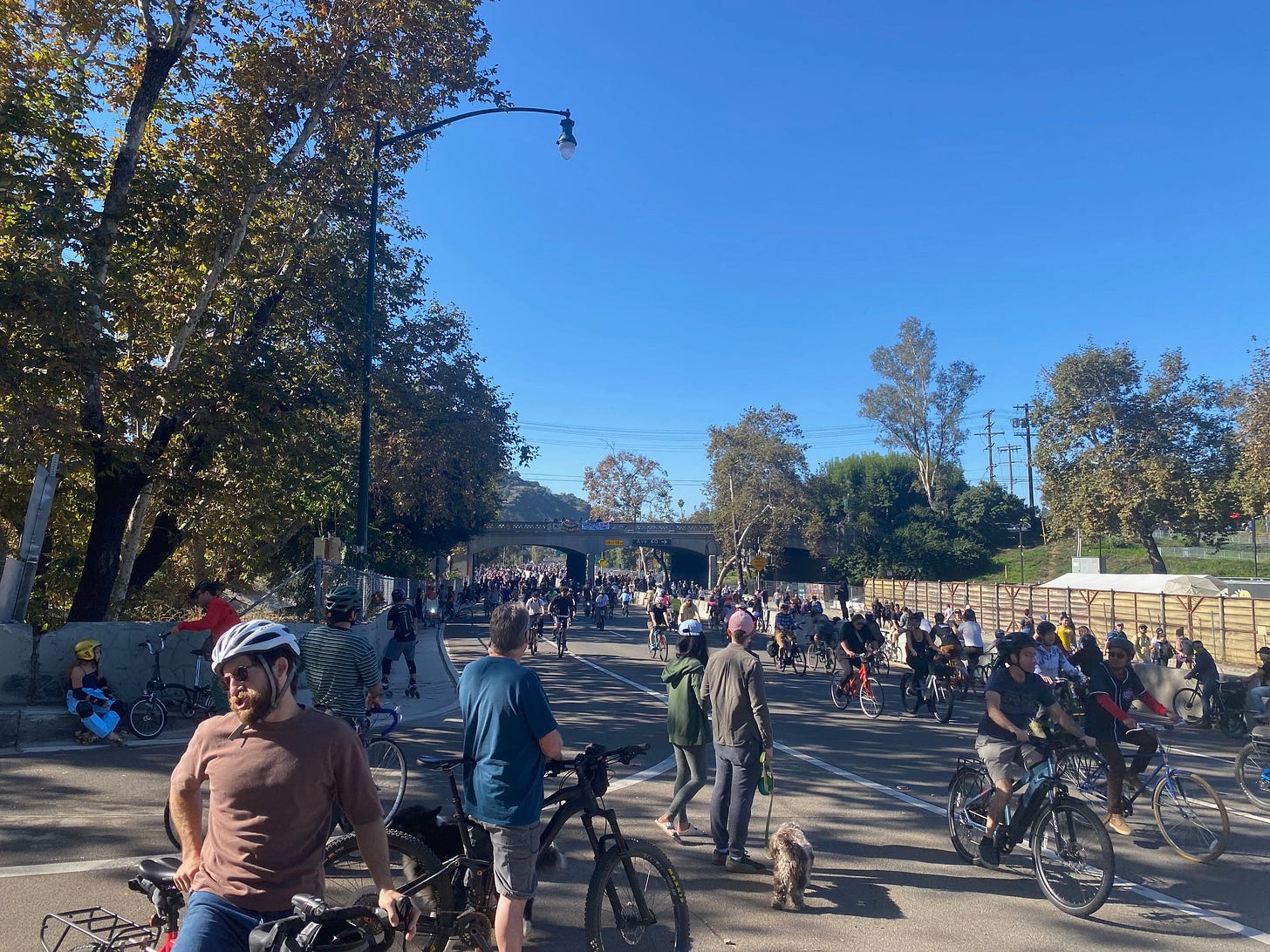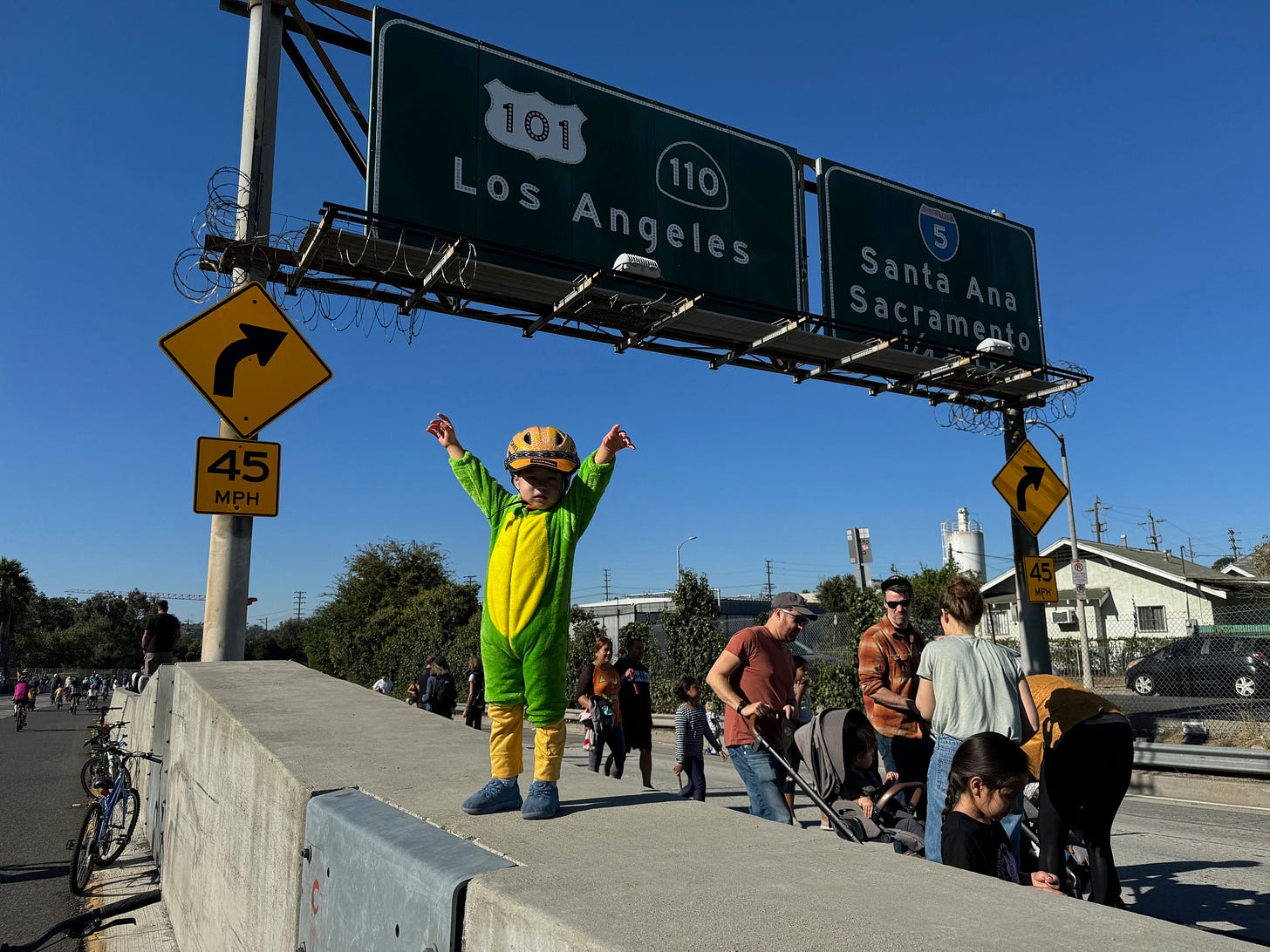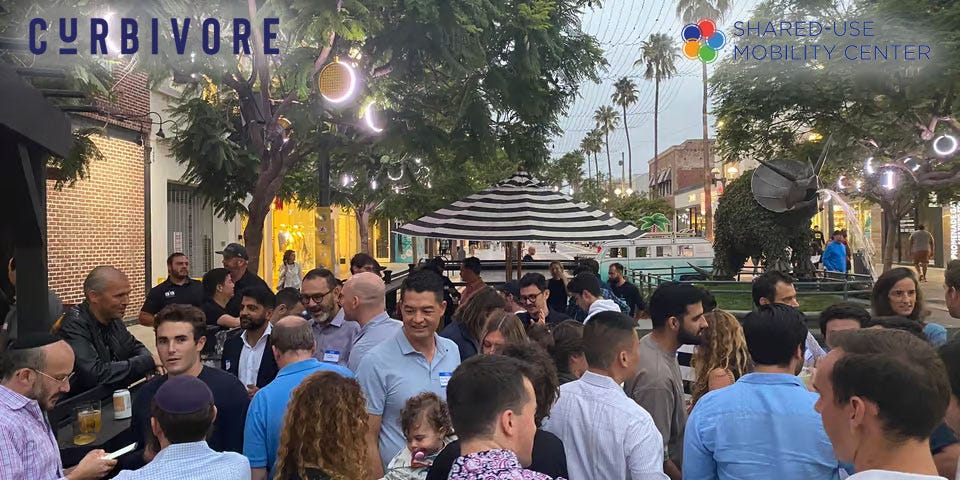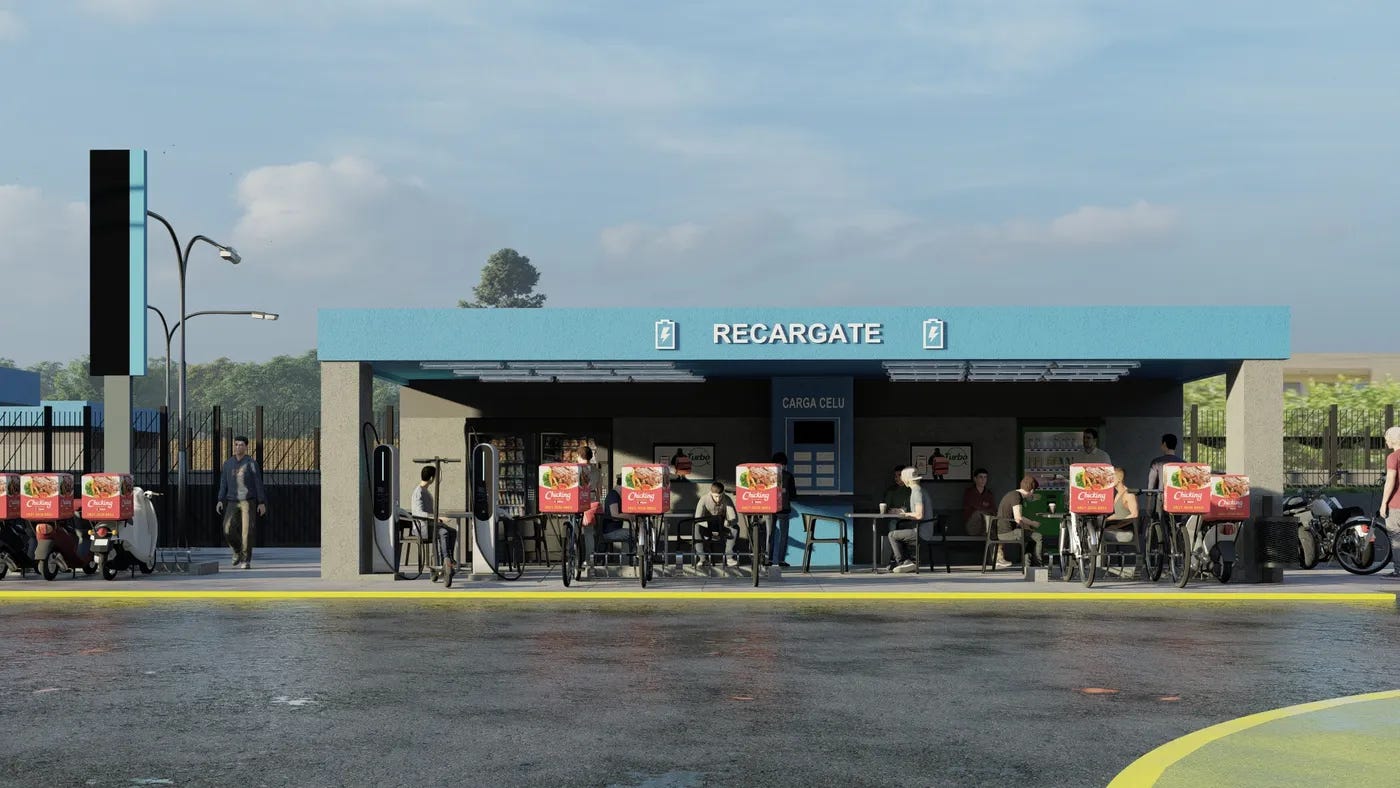Biking the Freeway, Candy on the Curb
Join us at the OMF Summit - November 14th
We’re less than two weeks away from the Open Mobility Foundation Summit, set for November 14th at the Japanese American National Museum in Little Tokyo, Los Angeles.
At the OMF Summit, you will have the chance to explore the latest advancements in our flagship tools, the Mobility Data Specification (MDS) and Curb Data Specification (CDS), and envision a smarter, digitally integrated urban world.
Hear from amazing speakers like Karina Ricks, Carlos Cruz-Casas, Kelly Rula, Marcel Porras, Kelly Ferguson and more.
Biking The Freeway, Candy on the Curb
This past Sunway made for a very special event in Los Angeles, as the 110 freeway was closed to cars and opened to people on bikes, scooters, feet and all sorts of other mobility devices. It was a return to form for an event originally held twenty years ago, but also marked the route reverting to an even older purpose — before it was one of the country’s first freeways, the Arroyo Seco Parkway’s course was the California Cycleway, an elevated wooden trestle for bikes.
Reportedly more than 50,000 Angelenos joined in on the festivities, and from a non-scientific survey I can tell you that every one of them had a smile on their faces. Truly a testament to what a better world we can have when we’re willing to rethink some of our auto-oriented infrastructure.
Folks nationwide likely had that same experience on Tuesday, as Halloween marks the rare occasion where nearly every sidewalk is busy with walkers and strollers, whether you’re in Chicago’s Loop or the exurbs of Dallas. While some cities go so far as to close certain neighborhoods to car traffic on the 31st, wouldn’t we be better off if we built a world where folks feel as comfortable walking their own streets every night of the week?
HOT INDUSTRY NEWS & GOSSIP
You’re invited - November 14th Happy Hour! Join us and our friends at the Shared Use Mobility Center for a mobility and delivery happy hour, 6-8 PM on 11/14, in the DTLA Arts District. RSVP now for free.
Small cars, big impact: It’s been a huge week for responsibly-sized vehicles, starting off with Waev (maker of GEM minicars) securing fresh financing to continue its strategic growth. Ola, maker of electric mopeds in southeast Asia, also hauled in an impressive $384 million in new funding to fuel its expansion. And Foxconn-led MIH Consortium announced plans to sell 100,000 three-seater vehicles per year, starting in India, Thailand and Japan. That last market should come as no surprise, given that the best selling EV in Japan is currently a $13,000, 2,359 pound mini-car. Expect things to get even smaller, as more and more cities build infrastructure to accommodate delivery cargo bikes.
Urban real estate woes! Downtown real estate still isn’t in the clear, as WeWork is reportedly filing for bankruptcy next week, with its low office occupancy rates a harbinger for the same issues weighing on both REITs and big city mayors. Urban retail also continues to sputter, with too many landlords locked in by banks that won’t give them the flexibility they need to find scrappier new tenants. But despite all the doom and gloom about coastal cities, the real downtowns we need to worry about are those in the long-suffering Rust Belt, or the decayed urban cores of Southern sprawl-burbs, where even in the best of times rents were a fraction of those found in SF.
As a corollary, check out this snapshot of WeWork’s location page in 2019, and compare it to how it looks today. It’s not California and New York that have fallen off the list, but the likes of Baltimore, Pittsburgh, St. Louis and San Antonio. A new plan from the feds might help transform some of those old offices into apartments, but the sad truth is the floorplans on many commercial buildings aren’t conducive to dwelling.
Speaking of urban doom loop! Some people out there seem to just be rooting for the demise of coastal cities. When a humble smoothie store opened in San Francisco two months ago, it got a bit of local press for being “AI-powered.” But when it shuttered, everyone from The Guardian, to the conservative tabloiders at the New York Post and the Mirror were almost giddy at this *proving* that SF was a dangerous wasteland. But do just an inch of digging and you’ll see earlier reporting showing that the store was only meant to last about a month, as it was merely a popup to test the company’s AI-powered menu technology. We lay out the whole saga at OttOmate.
The Portland process: The story starts out happilly enough: Portland, Oregon built a new bike lane, closing a missing gap in its network. But then PBOT realized there’d been a “mistake” and it hadn’t conducted enough public outreach, so it sent in a contractor to undo the progress and restripe the road in a car-friendlier manner. While brave Portlanders stood in front of the work crews to prevent deinstallation, the state of the route is now in limbo. Remember when the word Portland was synonymous with biking mecca?
DoorDash delivers: 3PD DoorDash just released some impressive quarterly results, with revenue up 27% YoY to $2.2 billion and its net loss narrowing to $75 million. Perhaps not unrelated, but the company is also testing an update that warns users that if they *don’t* tip their drivers in advance, their food might arrive cold.
Good curb news: The State of Minnesota has an RFP out for curb management tech. Cities from coast to coast are cracking down on free parking. Philly just passed a law to do camera enforcement of the bus lane. Seattle makes progress on digitizing the curb. LA quietly banishes parking minimums from almost all buildings within a half-mile of transit. NYC and Arcadis advance plan to rethink Fifth Ave. Less good — a new class action suit looks to overturn NYC’s outdoor dining program.
The data is in: New research proves that street front parking is bad for businesses, retail / commercial users are better served by parklets, streateries, curb furniture and greenery. Can we stop arguing about this now? (Probably not.)
Choo chew: Argentina’s train operator announces a plan to turn its transit stations into delivery hubs and rest areas for restaurants and their couriers. Clever!
Fallen branch: Our sympathies go out to the staff at gig work payment platform Branch, which had some big layoffs today. If you’re looking to work with any of these wonderful folks, let us know and we’ll put you in touch.
A few good links: Austin texas votes to abolish parking minimums, but will “freedom-luvin” legislators in the state government overrule the city? TNCs agree to pay $328 million in back pay for drivers in NY State. Premiere Food Trucks celebrates building 40th vehicle for Cousins Maine Lobster. Cleveland Clinic partners with Zipline for aerial deliveries. Feds dole out $40M for V2X. National League of Cities releases guide to decarbonizing delivery. Inglewood people mover qualifies for $1.2B in fed funding. Amazon execs pushed to “accept more defects.” Uber and Waymo launch in Phoenix. Taco Bell is sponsoring new food carts for street vendors, promoting the return of LA’s Ave 26 Night Market. Faction raises cash for micro logistics. NYC explores ebike / battery certifications. How to avoid the transit funding cliff. Eight great Streets for All bills signed.
Don’t forget to RSVP for November 14th’s happy hour!
- Jonah Bliss & The Curbivore Crew



